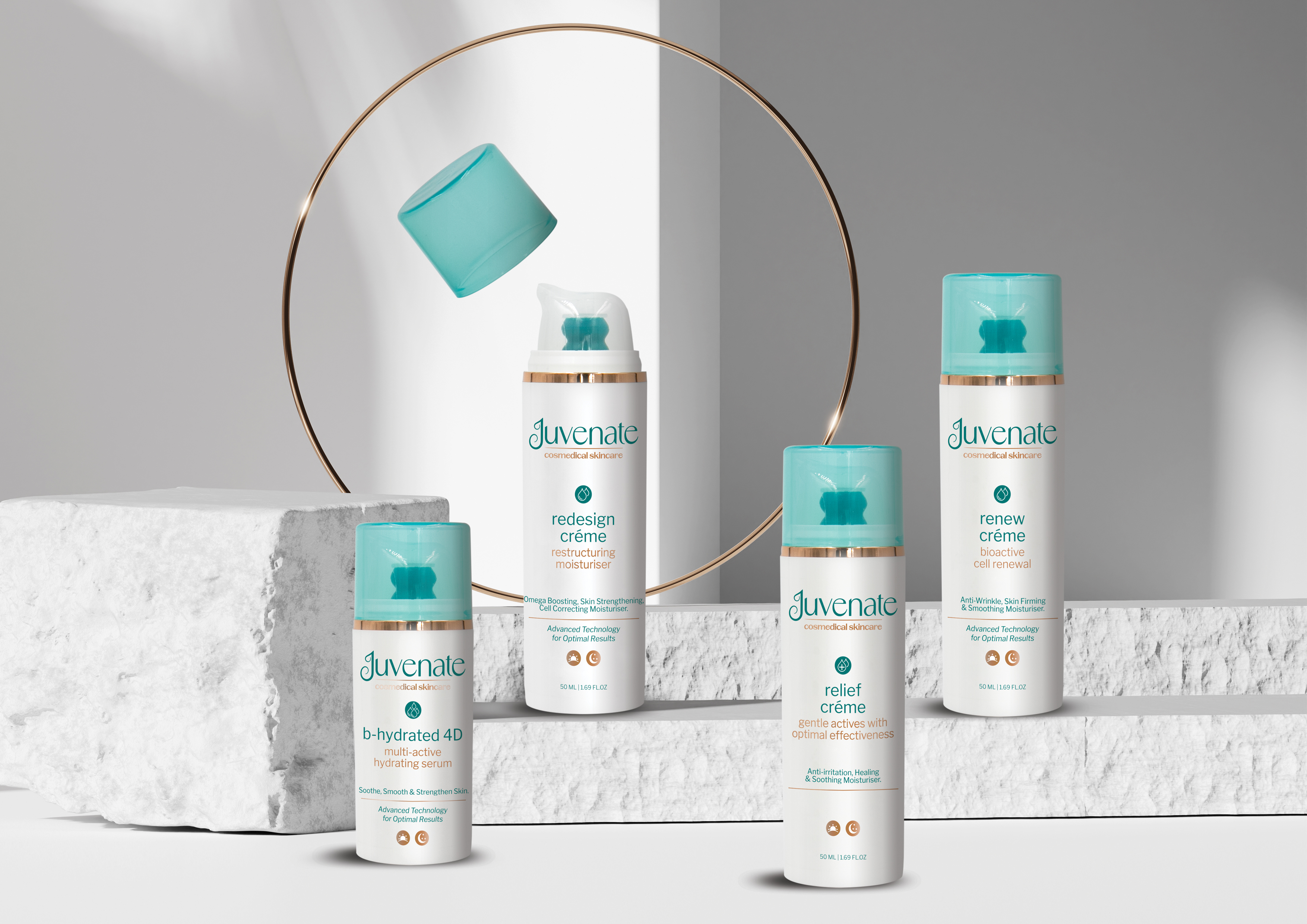Juvenate becomes the first Future Post Recycling Advocate

New Zealand’s largest clinic-only, cosmedical skincare range, Juvenate, has undertaken an extensive review to embrace sustainability as a core value, close their supply chain loop, and become the first skincare brand approved as a Future Post Recycling Advocate.
Juvenate founder, Marie August, carried out comprehensive research of packaging options, concluding that PCR and plant-based plastics are the sustainable choice over glass and aluminium. Glass and aluminium require energy-intensive processes for recycling, whereas many plastic types can be melted down and remoulded more efficiently.
Below are three ways Juvenate is helping to close the loop…
Eco-friendly airless bottles
Ingeniously designed using all-plastic recycled materials, Juvenate’s airless bottles help divert plastic waste from seabeds and landfills. Minimising virgin plastic consumption, the innovative packaging will contribute to the conservation of natural resources while promoting a circular economy.
Additionally, Juvenate’s lightweight minimalist airless design uses up to 50 percent less plastic, reducing carbon footprint due to freight and minimising product wastage.
Sugarcane plastic
Forgoing conventional fossil-based plastic, Juvenate’s tubes are derived from sugarcane. “Plant-based plastic not only protects our products with its durable and lightweight nature, but it also embraces the essence of Mother Earth herself,” explains Marie. “Made from renewable resources, such as sugarcane, plant-based plastic reduces reliance on fossil fuels, helping to combat climate change and reduce our carbon footprint.”
Lower energy consumption
Sugarcane plastic manufacturing uses less energy and emits fewer greenhouse gases than glass or aluminium production. Unlike glass and aluminium, sugarcane plastic helps absorb carbon dioxide during sugarcane plant growth, in turn reducing emissions. Its production also uses less energy compared to energy-intensive glass or aluminium processes. Moreover, sugarcane-based plastic is renewable as it relies on regrowable crops, unlike finite fossil fuels.

Return & reuse
Furthering Juvenate’s sustainability efforts, Juvenate customers can return their finished products to their clinic. Empty bottles and tubes are then transformed into durable products, as part of the brand’s commitment to a circular economy with FuturePost.
